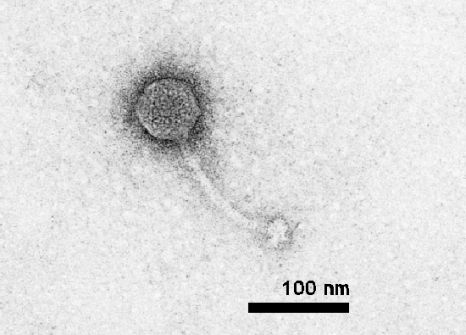
Electron Microscope image of bacteriophage D29; a broad host range virus that infects all members of the genus Mycobacterium. This phage has been used to develop a novel, rapid method to detect pathogenic mycobacteria in both clinical and food samples.